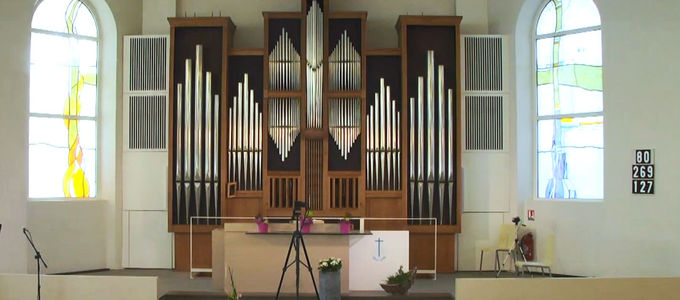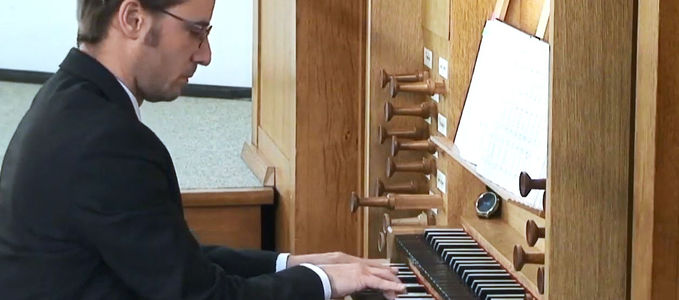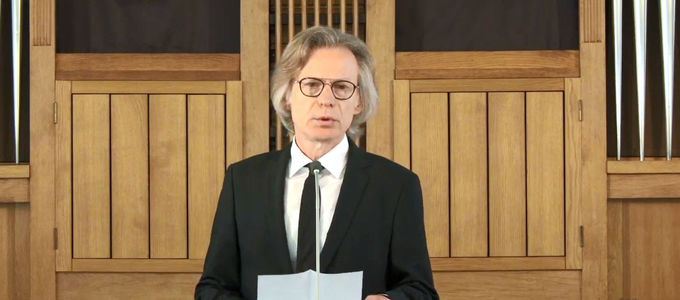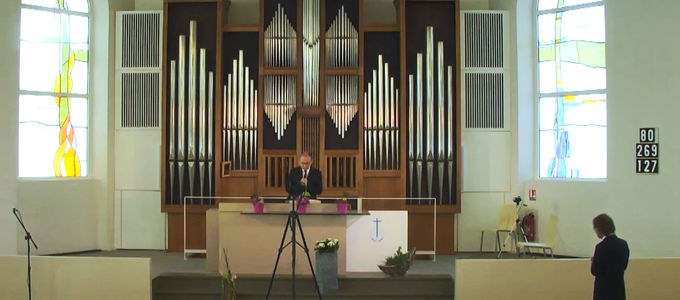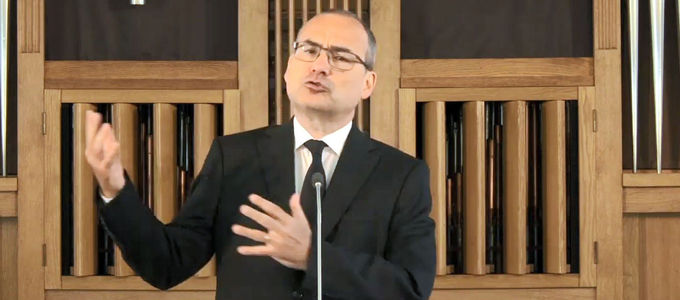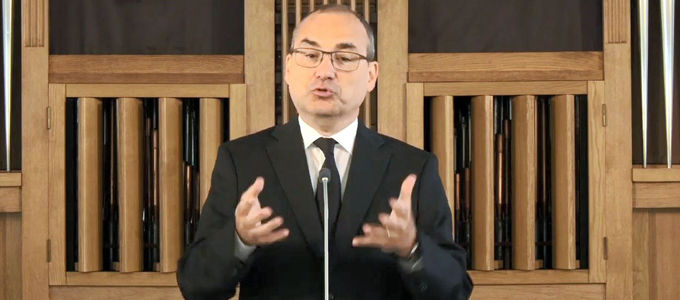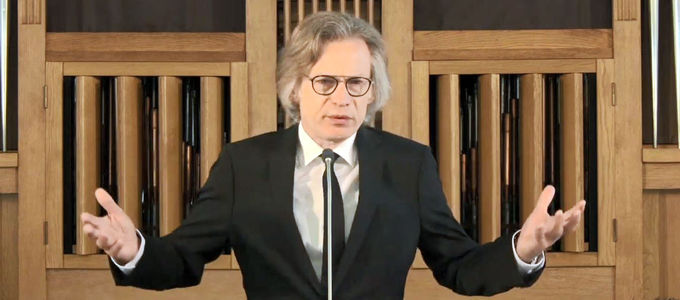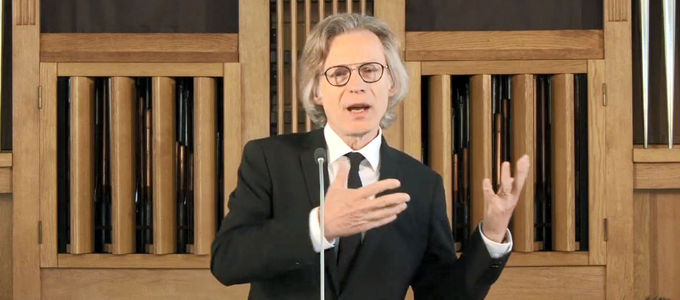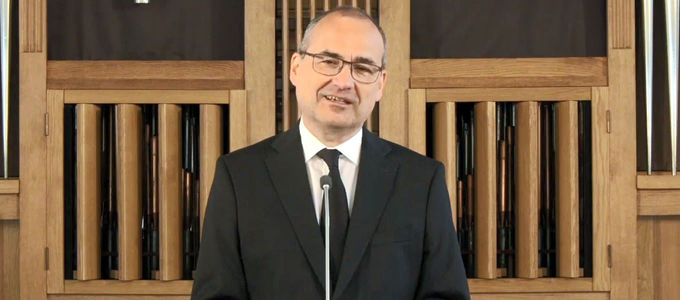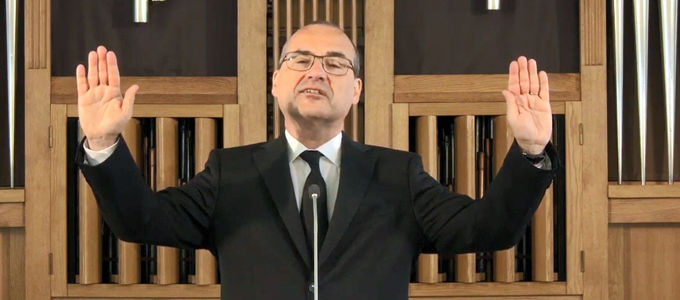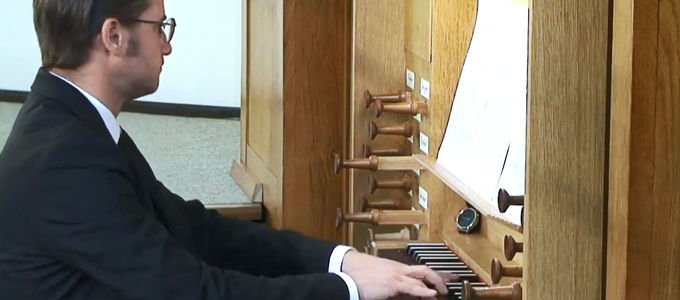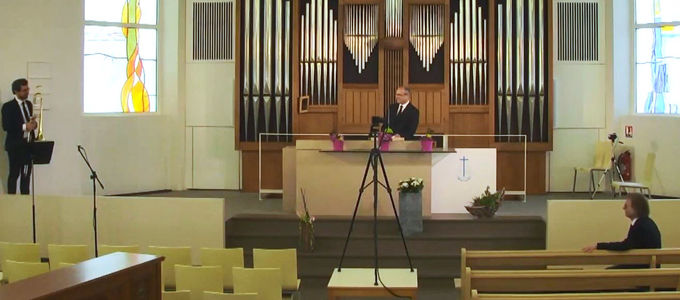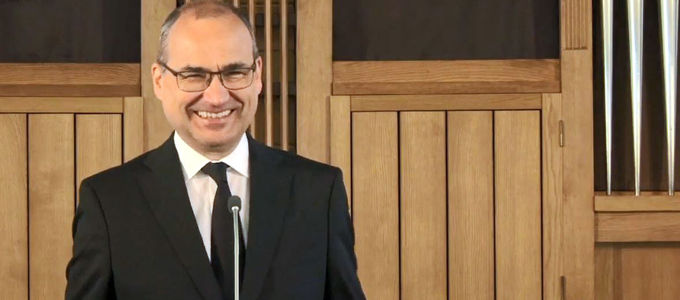When the wind blows into the fire
What happens when wind blows into a fire? A weak flame will be extinguished, but a strong flame will grow even stronger. So says a French proverb which the Chief Apostle referenced in one of his sermons on the subject of the fear of God.
Over the course of the coronavirus crisis, it has been impossible to have the usual local divine services. So it was that Chief Apostle Jean-Luc Schneider took advantage of the now well established practice of conducting a live divine service via web stream. On 3 May 2020 the divine service came from Strasbourg in France, and the Chief Apostle preached in the French language on the basis of a Bible text from Psalm 103: 11: “For as the heavens are high above the earth, so great is His mercy toward those who fear Him.”
The fear of God creates gratitude
The service thus revolved around the fear of God, which is a difficult and even incomprehensible subject for many. In the Christian context, however, this biblical term is often used. It describes the attitude of human beings toward God. In his sermon, the Chief Apostle suggested that God blesses those who fear Him. “The fear of God is indispensable in order to enjoy the grace of God in full measure,” he wrote into the hearts of his listeners, “because those who fear God will be grateful for all of His great deeds upon them.” The Chief Apostle then went on to mention three examples:
- the sacrifice of Jesus Christ and the salvation that it opens up for us.
- the treasure that is manifest in the divine services, Holy Communion, and the fellowship in the congregation.
- the kindness and goodness that He shows us in daily life. “More than ever before, we recognise that we owe everything that we have to His grace.”
The fear of God requires humbleness
“The fear of God,” said the Chief Apostle, “is also associated with humbleness: when Peter became aware of Jesus’ power, he fell before Him on his knees. When Thomas encountered the Risen One, he cried out: ‘My Lord and my God!’” While—in accordance with the teaching of the gospel—man turns to God as a father and sees a friend in Jesus Christ, this proximity should never make us forget the majesty of God!
For example, the present pandemic, which has made it impossible for us to celebrate Holy Communion, reminds us that it is God, not man, who initiates the encounter between God and man. Just because we plan a divine service in which we hope to celebrate Holy Communion does not guarantee that we will also succeed!
Apostle Paul likewise made reference to the fear of God. He wrote to the Philippians that they were to work out their salvation with fear and trembling. But what needs to be correctly understood is that God does not want us to be afraid of Him or fall into panic at the thought of being rejected by Him. He simply expects us to stay humble and remain aware of the fact that we owe our salvation to His grace alone.
The fear of God leads to trust in God
“We show our fear of God by way of the trust we place in God,” continued the Chief Apostle. “We do not always understand what God is doing, but we know that He never acts in an arbitrary way. True to His word, He does everything that He promises to do. We trust in the love of Jesus because He has proven it to us once and for all by giving His life for us.”
The fear of God is love that serves
The fear of God also expresses itself in our offerings and the willingness to serve: “Let us prove to God that He always holds first place in our hearts and in our lives! After all, to fear God is also to love Him and to seek Him with all our hearts. In order to illustrate this, the Church leader made reference to the aforementioned French proverb: l'absence est à l'amour ce qu'est au feu le vent: Il éteint le petit, il allume le grand.—“Absence is to love what wind is to fire: it extinguishes the weak and fans the strong.” A strong love is capable of great things! Concerning this, Chief Apostle Schneider posed the question: “What impact will this time of shutdowns and stay-at-home orders have on our love for God?”
God grants grace
The fear of God and grace—these are what comprise the aforementioned connection: “God grants His goodness and grace to those who fear Him.” And His goodness is as great as the heavens are above the earth. Concerning this, the Chief Apostle stated the following in conclusion:
- “The limitations of life on this earth cannot prevent God from bestowing His favours on us.”
- “From above, He is able to see much further than we can—before we even notice the tests and trials, He has already prepared the help that we will need.”
- “The inheritance that He has prepared for us in heaven is infinitely greater than any works we are capable of performing and any sufferings that we must endure on this earth.”
“Gratitude, humbleness, trust, love, and the willingness to serve—all of these are hallmarks of the fear of God,” said the Chief Apostle. This enables us to enjoy the full scope of God’s grace.
Article info
Author:
Date:
Keywords:
Peter Johanning
27.05.2020
France,
Chief Apostle,
Divine service



